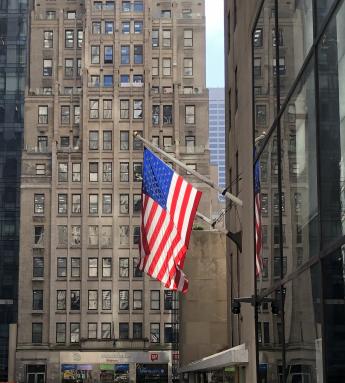Actualités
New US tariffs on products of Germany or the UK & its effects on the rare book trade

Dear Colleagues,
On October 2, 2019, the U.S. government announced a new group of tariffs at the rate of 25%, effective October 18 unless, as has happened in the past with other tariffs, they are in whole or part postponed or abandoned.
Some of these tariffs affect our trade. Initially book publishing groups in the U.K. and the U.S.A. announced they would affect most printed books. They do not.
ILAB has prepared a summary, below, of its understanding of the application of the new tariffs to the rare book trade.
These tariffs will be applicable to “Products of Germany or the United Kingdom.” This means that the tariff will apply wherever the German or U.K. “products” are shipped from. The applicable tariff sections are quoted at the end of this advisory.
ILAB has compiled this information from a number of sources and believes it to be accurate as far as it goes. No attorney we spoke to was prepared to offer a comprehensive interpretation or list of materials affected, and neither can ILAB. This is an informational notice containing opinions and anyone relying on these opinions does so at her or his own risk.
Broadly speaking, we can quote the most recent update (October 4) of the U.K. online journal The Bookseller: “the tariff on books from the UK and Germany does not apply to bound printed books, though it will apply to unbound books and some other printed items.”
“Unbound books” is a reference to Harmonized Tariff Schedule Section 4901.10, for which see below.
Also, listed below are applicable tariff sections for other graphic materials which will be charged at the same 25% rate. Many of these “lithographs, pictures, designs, and photographs. . . printed not over 20 years at time of importation” are materials which might well be in the stocks of ILAB booksellers.
Materials over one hundred years old remain free of tariffs and are generally covered under Chapter 97 of the Harmonized Tariff Schedule.
ILAB’s conclusion is that there are grey areas on which individual members should take independent advice before importing into the U.S.A. such things, less than one hundred years old, as livres d’artiste and other publications in loose signatures, broadsides, unbound sheets like galley proofs, and single prints. This is not a comprehensive list.
There may be limitations which could exempt certain types of the above materials from the new tariffs, and – we emphasize again – there may be other categories we have not identified which could be subject to tariffs. ILAB encourages its booksellers to be careful and especially thorough in their customs declarations to identify materials being shipped, noting where applicable that books are “bound printed books” and that unbound printed, lithographed, photographic, etc. materials are fully described with their dates and countries of origin.
Once again, we emphasize that this is no more than a general guide and that dealers intending to ship materials into the U.S.A. must make their own enquiries and satisfy themselves they are in compliance with applicable laws and tariffs.
Please see the specific legal language of the applicable tariffs below.
Best wishes,
Sally Burdon
ILAB President
U.S. Trade Representative Announcement of Tariffs:
Section 4 – Products of Germany or the United Kingdom described below are subject to additional import duties of 25 percent ad valorem:
Tariff subheadings are followed by product descriptions:
4901.10.00
Printed books, brochures, leaflets and similar printed matter in single sheets, whether or not folded
4908.10.00 Transfers (decalcomanias), vitrifiable [ILAB note: these are graphic transfers onto glass or pottery]
4911.91.20
Lithographs on paper or paperboard, not over 0.51 mm in thickness, printed not over 20 years at time of importation
4911.91.30
Lithographs on paper or paperboard, over 0.51 mm in thickness, printed not over 20 years at time of importation
4911.91.40
Pictures, designs and photographs, excluding lithographs on paper or paperboard, printed not over 20 years at time of importation
